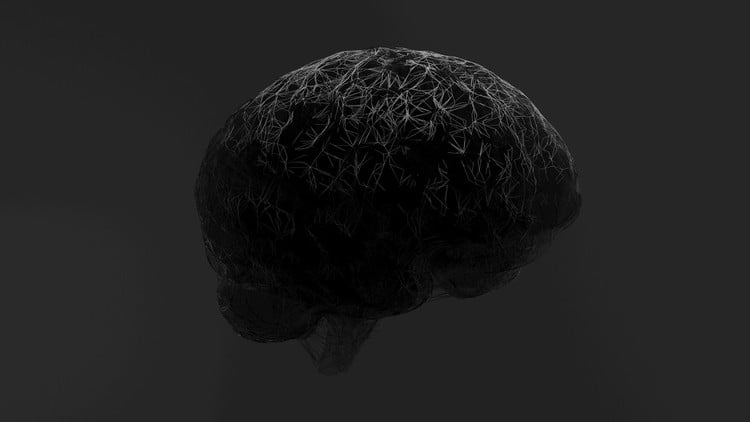
CBT Practitioner Course, Cognitive Behavioural Therapy for coaching, counselling, and personal transformation, mindset
⏱️ Length: 5.9 total hours
⭐ 3.83/5 rating
👥 784 students
🔄 October 2025 update
Add-On Information:
Note➛ Make sure your 𝐔𝐝𝐞𝐦𝐲 cart has only this course you're going to enroll it now, Remove all other courses from the 𝐔𝐝𝐞𝐦𝐲 cart before Enrolling!
-
Course Overview
- This certification program is meticulously designed to equip individuals with the foundational and practical skills necessary to effectively implement Cognitive Behavioural Therapy (CBT) techniques.
- It bridges the gap between theoretical understanding and actionable application, making CBT accessible for diverse professional and personal development goals.
- The curriculum focuses on empowering participants to become proficient in guiding themselves and others through the process of identifying, understanding, and modifying cognitive and behavioural responses.
- Participants will gain an in-depth appreciation for the therapeutic alliance and ethical considerations inherent in CBT practice, ensuring responsible and impactful interventions.
- This course provides a comprehensive toolkit for fostering positive psychological change, enhancing emotional regulation, and building robust mental well-being.
- It is tailored for those seeking to elevate their helping skills, whether in a formal therapeutic setting, as a life coach, or for profound self-improvement.
- The modular structure ensures a progressive learning experience, building from core concepts to advanced application scenarios.
- Emphasis is placed on cultivating a compassionate and client-centred approach within the CBT framework.
- The course delves into the nuances of therapeutic dialogue and the art of facilitating client self-discovery and empowerment.
- It aims to foster critical thinking and problem-solving abilities relevant to psychological challenges.
- Participants will develop a nuanced understanding of how thoughts, feelings, and behaviours are interconnected and influence overall well-being.
- The learning experience is designed to be engaging and interactive, promoting active participation and skill internalization.
- This certification signifies a commitment to evidence-based therapeutic practices and a dedication to promoting mental health.
- The course content is updated to reflect current best practices and advancements in the field of CBT.
- It offers a structured pathway to developing expertise in a widely recognized and highly effective therapeutic modality.
-
Requirements / Prerequisites
- A genuine interest in psychology and human behaviour is beneficial.
- Openness to self-reflection and personal growth is encouraged.
- No prior formal therapeutic training is mandated, making it accessible to a broad audience.
- Basic literacy and comprehension skills are sufficient.
- A willingness to engage with course materials and practice exercises is essential.
- Participants should have access to a stable internet connection for online delivery if applicable.
-
Skills Covered / Tools Used
- Active Listening & Empathetic Communication: Developing the capacity to truly hear and understand client perspectives, fostering a safe and trusting environment.
- Cognitive Restructuring Techniques: Learning to identify and challenge cognitive distortions, promoting more balanced and realistic thinking.
- Behavioural Activation Strategies: Equipping individuals with methods to increase engagement in positive and rewarding activities.
- Problem-Solving Frameworks: Implementing structured approaches to break down and address challenges effectively.
- Goal Setting & Action Planning: Guiding clients in setting achievable objectives and developing concrete steps to reach them.
- Mindfulness & Present Moment Awareness: Cultivating the ability to focus on the present experience without judgment.
- Psychoeducation Delivery: Effectively explaining CBT principles and their relevance to client issues.
- Session Structuring & Management: Developing the ability to plan and conduct focused and productive therapeutic sessions.
- Ethical Decision-Making in Practice: Navigating the ethical considerations and responsibilities involved in therapeutic work.
- Case Conceptualization Skills: Learning to analyse client issues through a CBT lens to inform intervention strategies.
- Relapse Prevention Planning: Empowering individuals with strategies to maintain progress and manage future challenges.
- Introduction to Therapeutic Rapport Building: Understanding the foundational elements of forming a strong therapeutic connection.
- Utilisation of Thought Records & Behavioural Diaries: Employing structured tools for tracking and analysing cognitions and behaviours.
-
Benefits / Outcomes
- Enhanced Self-Awareness: Deeper understanding of one’s own thought processes, emotional triggers, and behavioural patterns.
- Improved Emotional Regulation: Greater capacity to manage and respond to challenging emotions in a constructive manner.
- Increased Resilience: Development of coping mechanisms to navigate adversity and bounce back from setbacks.
- Professional Credibility: Attainment of a recognized certification that validates competence in CBT application.
- Expanded Career Opportunities: Opening doors to roles in counselling, coaching, mental health support, and HR.
- Personal Growth Catalyst: A transformative journey leading to greater self-understanding and well-being.
- Effective Intervention Skills: The ability to apply evidence-based strategies to address a range of psychological concerns.
- Empowerment of Others: Gaining the skills to guide and support individuals in their personal development journeys.
- Foundation for Further Study: A solid base for pursuing advanced training in psychotherapy and related fields.
- Greater Confidence in Helping Roles: Increased assurance when working with individuals facing emotional or behavioural challenges.
- Cultivation of a Growth Mindset: Fostering a belief in the capacity for change and personal development.
- Improved Interpersonal Relationships: Applying learned skills to enhance communication and understanding in personal and professional interactions.
-
PROS
- Action-Oriented and Practical: Focuses on tangible skills that can be applied immediately.
- Evidence-Based Modality: Rooted in a widely respected and scientifically validated therapeutic approach.
- Versatile Application: Applicable across various helping professions and for personal development.
- Structured Learning Path: Provides a clear and progressive framework for skill acquisition.
- Accessible for Beginners: Designed to be understandable and beneficial for individuals without prior therapy experience.
-
CONS
- Requires Active Practice for Mastery: The effectiveness of CBT skills is significantly enhanced through consistent application and self-practice.
Learning Tracks: English,Health & Fitness,Mental Health
Found It Free? Share It Fast!